Get Eye Surgery done by Best Eye Surgeons
- Affordable and best Eye Surgery by top surgeons
- Eye Surgeries with the latest and advanced technologies
- Online consultation by top doctors
FREE Tele-Consultation
Book Appointment or Video Consultation online with top eye doctors
About Eye Surgery
If a person is suffering from the beginning stages of some specific eye ailments, then surgery becomes the last option.
An eye specialist will use several other methods for treatment such as prescription of “different kinds of eyeglasses, eye drops, eye gel, and contact lenses of various kinds”. An eye specialist considers the option of “Eye surgery”, for an individual only when his/her eye ailment has reached an advanced rate of progression and can cause vision loss in the near future.
Eye Conditions Which Require Eye Surgery
Cataract
A cataract is essentially a condition in which the lens of the eyes gets clouded creating diminished vision. Cataracts occur because protein builds up in the lens of the eye and it is common among old-aged adults, however, it could occur in young adults and children as well. Cataracts cause the eyes to look foggy, clouded, and milky in appearance. We use 100% Blade-free Femto Laser.
Glaucoma
Glaucoma is generally associated with a buildup of pressure inside the eye (Intraocular Pressure{IOP}) because the fluid inside the eye aqueous humor stops draining from the eye normally. The fluid in the eye drains out from the trabecular meshwork. In Glaucoma, this drainage gets blocked leading to pressure buildup. The fluid pressure buildup can be attributed to the intrinsic deterioration of the optic nerve as well as genetic factors. We at Eye Mantra provide the best glaucoma services with all the advanced diagnoses in Glaucoma.
Refractive Errors
Refractive errors are the most common type of eye disease. Myopia (nearsightedness), hyperopia (farsightedness), astigmatism (distorted vision at all distances), and presbyopia (loss of ability to focus up close, inability to read phone book letters, need to hold newspaper farther away to see clearly) are all refractive errors that can be corrected with eyeglasses, contact lenses, or in some other surgery.
Age-Related Macular Degeneration
Macular degeneration, often known as age-related macular degeneration (AMD), is an age-related eye illness that causes damage to sharp and central vision. To see objects properly and do basic daily tasks like reading and driving, central vision is required. The macula, the center region of the retina that permits the eye to see fine details, is affected by AMD. There are two types of AMD: wet and dry.
Diabetic Retinopathy
Diabetic retinopathy (DR) is a common diabetic condition. It is the major cause of adult blindness. It causes progressive damage to the blood vessels of the retina and the light-sensitive tissue at the back of the eye that is required for good vision.
Strabismus
Strabismus is a condition in which the two eyes are imbalanced. Strabismus causes the eyes to cross inward (esotropia) or turn outward (exotropia) (exotropia). A lack of coordination between the eyes causes strabismus. As a result, the eyes look in different directions and do not focus on a single point at the same time. When both eyes fail to focus on the same image, depth perception is reduced or absent, and the brain may learn to ignore the input from one eye, resulting in irreversible vision loss in that eye (one type of amblyopia).
At Eye Mantra Eye Centre in New Delhi, our team of eye specialists judges the unique eye conditions of every patient and prescribes a treatment plan that will render excellent and high-graded visual results.
Different Kinds Of Eye Surgical Procedures
Cataract Surgery
The medical condition is known as “Cataract”, which causes the natural lens of the eye to become cloudy. And if an individual is suffering from an advanced stage of “Cataract”, then he can also lose his vision completely in the near future. The cloudy lens is replaced with an artificial lens, under this medical procedure.
There are several kinds of risks attached to cataract surgery which include “Inflammation, Infection, Bleeding, Swelling, Dislocation of the artificial lens, Retinal detachment, Glaucoma, Secondary cataract, Loss of vision”.
Refractive Lens Exchange Surgery
When an individual is suffering from a severe case of “presbyopia”, then a “Refractive Lens Exchange Surgery”, becomes the necessary option for him. If an individual’s eyes slowly lose the ability to focus on nearby objects, then this form of a medical condition is known as “Presbyopia”.
This condition is most commonly detected in people who are over 40 years old. If an individual is suffering from the initial stages of this condition, then corrective lenses are a viable option of treatment but if the conditions continue to worsen, then surgery is the only option left.
The surgical procedure is performed by removal of the natural lens, via small incisions and when the natural lens has been removed properly, it is replaced with an artificial lens. The artificial lens serves the purpose of providing an enhanced vision. Individuals who are suffering from “severe hyperopia”, are also treated with the help of this surgical procedure.
LASIK Surgery
If an individual is suffering from one of the various kinds of refractive errors in the eye, then “Lasik surgery” is the most suitable option for him. This surgical procedure is performed on an individual’s eye when the retina of his eye cannot focus on objects properly. The objects can be situated either at a far distance or a nearby distance.
Types of LASIK eye surgeries:
- Topography guided LASIK- This form of surgical procedure entails the complete usage of mapping technologies for precise and accurate treatment of the individual’s eye.
- Wavefront-guided LASIK– In this surgical procedure, comprehensively detailed wavefront generated measurements are used to assess the path of light traveling through the eye, and how the light falls upon the retina.
- All-laser LASIK:- This form of surgical procedure removes the use of any kind of surgical blade and instead uses a “Femtosecond Laser” to enhance the surgical process.
Trabeculectomy
Individuals who are suffering from “Glaucoma”, undergo this surgical form of surgical procedure. The purpose of Trabeculectomy is to lower the pressure inside the eye and this surgical procedure has a success rate of 60%-80%. There are different kinds of trabeculoplasty surgery, which are “Traditional trabeculoplasty, Argon laser trabeculoplasty, Micropulse diode laser trabeculoplasty (MDLT), Selective laser trabeculoplasty.
Keratoplasty Surgeries
This form of surgery is also known as” Corneal transplantation”. Keratoplasty surgery is performed on an individual’s eye, either when his cornea’s curvature has become too flat or when there is the presence of a tumor. The several conditions which require “Keratoplasty Surgery” include “Corneal scarring, eye infections, presence of an external tumor, corneal ulceration or erosion, corneal thinning or perforation”.
Since the occurrence of various kinds of eye ailments is not uncommon in different individuals. An eye specialist must be consulted by the individual to assess the condition of his eye ailment. The eye specialist will decide the required course of treatment and the need for any kind of surgical procedure.
Eye Surgery Procedure
Eye surgeons use distinct types of procedures for the treatment of different kinds of eye ailments. If an individual is suffering from “refractive errors” of the eye, then “LASIK surgery”, becomes the most viable option for him. If an individual is suffering from an advanced stage of “Cataract”, then a “Cataract eye surgery” can restore his vision to the best possible state.
Our eyes are largely built-up of a huge network of nerves and so before the initiation of any surgical procedure of the eye, “Anesthesia” becomes a very important tool. In a large number of cases, “Local anesthesia” is most commonly used. But in the case of small and quick surgical procedures, “Topical anesthesia” is used.
Several precautions are taken by the eye surgeon before the beginning of eye surgery to make sure that there is no spread of any kind of infection. These precautions can involve the usage of sterile gowns and gloves and maybe even the use of “antiseptics”.
Eye Surgery Aftercare
- It is requested for you go directly home after your Eye treatment.
- You must not rub your eyes for the first day after your surgery.
- You should avoid any eye makeup or creams, for one day post-surgery.
- Avoid swimming, hot tubs, and gardening for one week.
- Avoid getting water directly into your eye(s). You may shower the day post-surgery.
- You may go back to your work and exercise routine post-surgery.
- At your first postoperative visit, your doctor will tell you when you may resume driving. Most patients can see well enough to drive the day after their procedure, with the doctor’s approval.
- You may experience increased sensitivity to light for the first few hours post your Eye Surgery. Sunglasses should be worn when your eye is light-sensitive.
We also provide charitable services for the “underprivileged sections of society”. Because we believe in making the world a happier place to live in. So an individual who requires eye surgery, but is unable to afford the treatment expenses, can come to our hospital and his entire treatment will be done “free of cost or at a very nominal price”.
Best Eye Hospitals for Eye Surgery
India has one of the best eye hospitals for Eye surgery such as AIIMS, Sankara Nethralaya, LVPEI and Eye Mantra. Eye Mantra is one of the leaders in Eye surgeries with over 100,000+ eyes operated so far by its doctors.
Latest technology with specialized approach, gives the most beneficial results after Eye surgery by our top eye surgeons in Delhi and other cities. Consult with our expert Eye surgery doctors today.
Our Team

Cataract, Retina, Glaucoma, LASIK
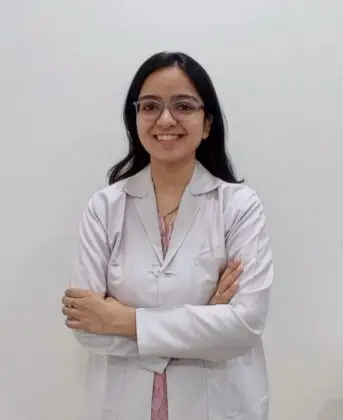
Retina Specialist

Cataract, Retina, Glaucoma, LASIK

Cataract, Retina, Glaucoma, LASIK
Our Facilities
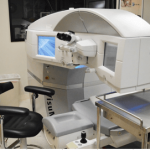
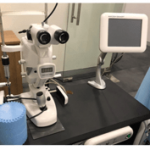
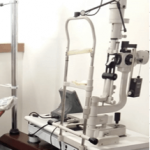

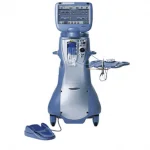
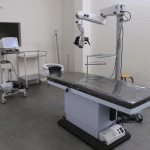
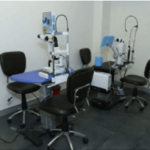
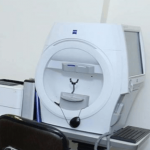
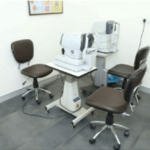
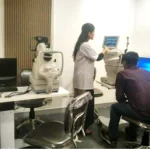
FAQ's
After vision correction surgery, most patients can see perfectly within 24 hours, but others may take two to five days to recover. For several weeks after some eye surgeries, some patients may experience cloudy vision and visual irregularities.
During eye surgery, the vast majority of people do not suffer any discomfort. Although you may feel some pressure, your surgeon will provide you numbing eye drops prior to the procedure to alleviate any discomfort. Once the eye drops wear off, it’s usual to feel some discomfort or minor pain after your surgery.
Yes, on average most people recover after a week to 10 days. Some take longer, even up to about 6 weeks.
After laser eye surgery, the vast majority of patients only need to take two days off work. Keep in mind, though, that you may need to take up to a week off work.
Your eye may burn, itch, or feel as if something is in it just after the surgery. You may feel some discomfort or slight pain, and your doctor may recommend that you take a mild pain reliever. It’s possible that both of your eyes will tear or water. It’s likely that your vision will be foggy or blurry.
LASIK is the best refractive eye surgery procedure. Most patients who have laser-assisted in situ keratomileuses (LASIK) eye surgery have a vision of 20/25 or better, which is adequate for most activities.
Heavy lifting and physical activity should be avoided. Do not swim or use a hot tub to help avoid infections. Make every effort not to rub your eye(s) following surgery. Avoid wearing eye makeup and applying face cream or lotion.
Since 2012 Eye Mantra has been addressing vision issues and is well known for its output. Dr. Shweta Jain with more than 10 years of experience has successfully fixed eye-related ailments of about 10000+ patients. If you are troubled with any kind of ocular problems, do visit Eye Mantra.


